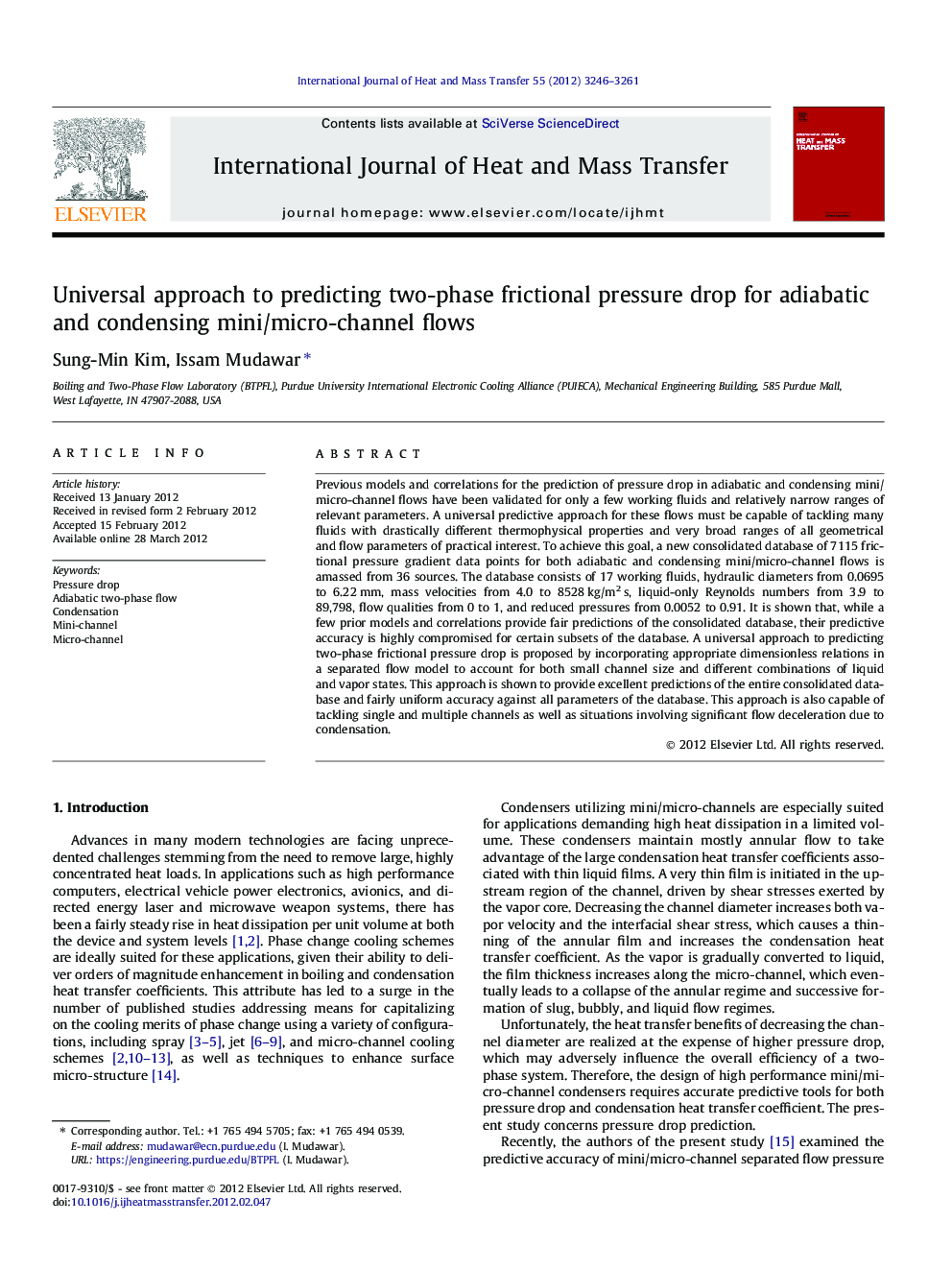| Article ID | Journal | Published Year | Pages | File Type |
|---|---|---|---|---|
| 659504 | International Journal of Heat and Mass Transfer | 2012 | 16 Pages |
Previous models and correlations for the prediction of pressure drop in adiabatic and condensing mini/micro-channel flows have been validated for only a few working fluids and relatively narrow ranges of relevant parameters. A universal predictive approach for these flows must be capable of tackling many fluids with drastically different thermophysical properties and very broad ranges of all geometrical and flow parameters of practical interest. To achieve this goal, a new consolidated database of 7115 frictional pressure gradient data points for both adiabatic and condensing mini/micro-channel flows is amassed from 36 sources. The database consists of 17 working fluids, hydraulic diameters from 0.0695 to 6.22 mm, mass velocities from 4.0 to 8528 kg/m2 s, liquid-only Reynolds numbers from 3.9 to 89,798, flow qualities from 0 to 1, and reduced pressures from 0.0052 to 0.91. It is shown that, while a few prior models and correlations provide fair predictions of the consolidated database, their predictive accuracy is highly compromised for certain subsets of the database. A universal approach to predicting two-phase frictional pressure drop is proposed by incorporating appropriate dimensionless relations in a separated flow model to account for both small channel size and different combinations of liquid and vapor states. This approach is shown to provide excellent predictions of the entire consolidated database and fairly uniform accuracy against all parameters of the database. This approach is also capable of tackling single and multiple channels as well as situations involving significant flow deceleration due to condensation.
